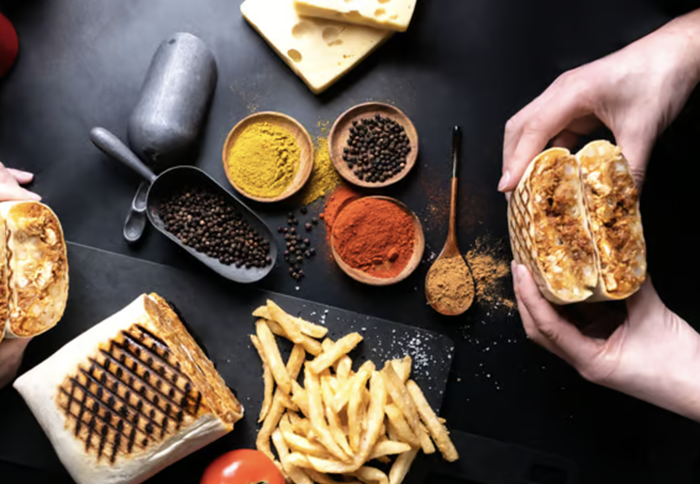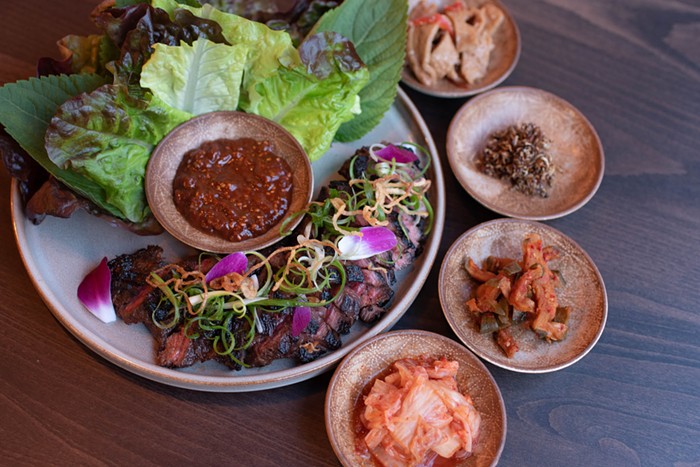You can give the people of Seattle a guarapó press, but you can't make them like the guarapó. The bartender at Marazul, in the new Whole Foods/Pan Pacific complex on Denny Way, is disappointed in the citizenry. She's got a smile like sunshine, and the power to reduce big stalks of sugar cane to flattened smithereens and glassfuls of cane juice—yellowish-green, a layer of crema on top, subtly and verdantly sweet. The product of her surprisingly quiet, shiny steel machine tastes like pure goodness. In the tropics, people drink it over ice; at Marazul, bargoers have been rejecting caipirinhas and mojitos made with it because they don't taste like they always taste—like simple syrup, with its sharp, processed flavor spike and vastly greater sugar content.
"It's kind of sad, actually," says the bartender, but people, sheeplike, will reject pure goodness until it's what everybody else is having. Unless they're male, in which case they'll sometimes order Marazul's "Samba Lips" martini—Cuervo, lime, plentiful fresh chilies, demerara raw sugar—and clearly dislike it, yet drink the whole thing to prove their manliness. The bartender does not recommend it ("Honestly, it tastes like chicken marinade"), but it's compelling in a perverse way: salty, burning at the back of the throat, looking like uncooked scrambled eggs in the glass, tasting like it'd cure what ails you.
Three businessmen come in to sample rum—here insistently spelled French-style, "rhum," and available in 45 different varieties, including flights by region (U.S. Virgin Islands, $20; Anguilla, $57). These early adopters compare tasting notes ("vanilla and rubbing alcohol," "smooth, tobacco"). Rum is the new tequila, elevated from its 'n'-Coke status like tequila's been resurrected from spring-break-shot-of, ready to be sipped straight and the topic of a coherent conversation. The bartender knows more about it than anyone ought to; she confides rather than gushes.
Marazul's neotropical bar—illuminated shelves of rum/rhum, highly stylized palm tree, tiled water-feature wall—looks out on a concrete plaza's elevators, garbage receptacles, bike rack. The dining room's corporate-contemporary-colonial. The menu celebrates the less brutal elements of the time when the sun never set on the British empire, "mingling the cultural interplay" of Cuban, Caribbean, and "Indo-Asian" influences in a dubious conceptual flurry (with "Urban Rickshaw" soundtrack to match). Some results are excellent, like divinely odd "tunapica lollypop sushi"—a fried rice ball with Spanish olives and currants, wrapped in raw tuna, speared with a sugar cane stick, dipped in plummy reduced miso and bonito flakes. Hearts of palm in a sushi roll make a weirdly perfect fish substitute. Dark-meat jerk chicken sate: rich, spicy. Supersalty codfish croquettas, countered with sweet/hot coconut tomato sauce: yum. Pickley striped bass ceviche, dull tempura shrimp sushi, and dry jerk pork potstickers are less of a thrill, but the twice-daily happy hour—4:00–6:00 p.m. and 10:00 p.m.–1:00 a.m., with many snacks from $1.95–$4.95—allows for lots of experimentation, if you're not afraid.
Marazul, 2220 Westlake Ave, 654-8170


















